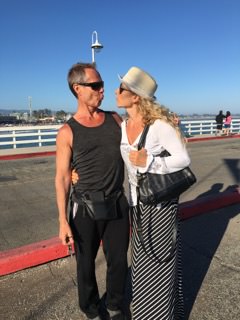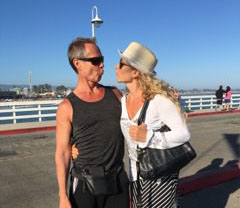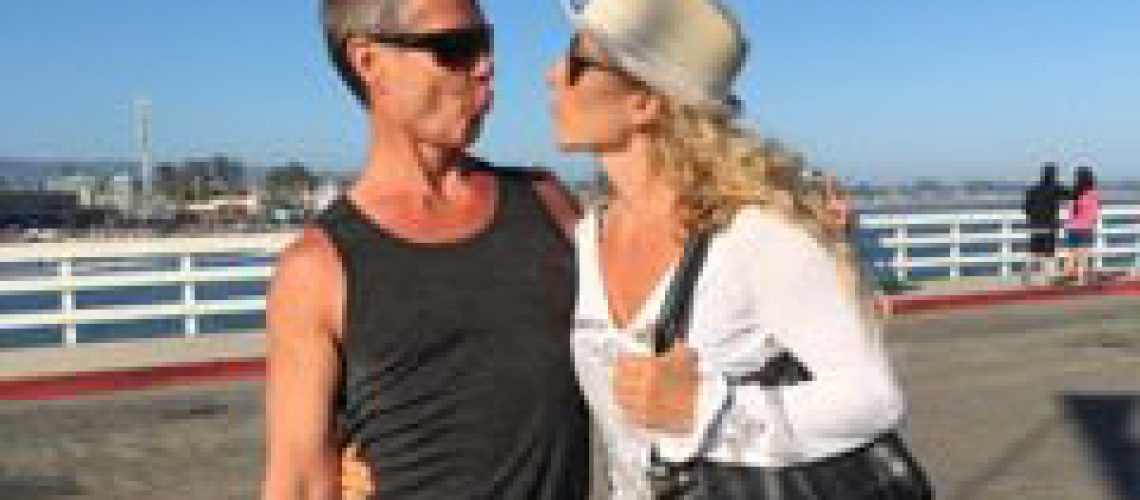By Aniela Gregorek
When I ask people whether they like to travel, they always say yes. They love exploring new cultures, tasting new foods, experiencing local customs, architecture, the natural environment and so on. They say that differences from their own culture generate a feeling of newness and excitement.

Then I ask them whether they would want to stay in one of these countries indefinitely. This prompts most people to start to think. They say that although they like to travel, they are always happy to return home. When they are away, they miss what they left behind. Familiarity and predictability are comforting.
What’s the difference between going abroad as a tourist vs. for the purpose of immigration? Both journeys will expose you to different environments and lifestyles. But the emotions one experiences as a tourist are quite different from those of a new immigrant who intends to remain at the destination permanently. Immigration naturally involves many anxieties and a certain level of discomfort: learning a new language, finding a job and a place to live, making new friends and so on. Why, then, would people want to go through something so difficult and discomforting?
Because they want to make their lives better, and immigration at least brings opportunity and hope for a better life.
In my case, growing up in Poland, I studied Russian for eight years. I viewed it as the language of Tolstoy and Pushkin: rich, poetic and melodious. It was beautiful to my ears. Jerzy, on the other hand, always disliked Russian, because of its political associations. Russia (and later the Soviet Union) was Poland’s oppressor, the cause of Poland’s poverty and misery for centuries.
I never imagined that my life would have turned out as it did, especially the act of leaving my native country for an unknown future on the other side of the world.
When Jerzy and I first arrived in the United States, we knew no one. We landed in New York and spent our first day in Detroit, where our sponsor was located, but promptly made our way to California because it was where we wanted to be. With the money we had saved in Sweden and Germany, we purchased our tickets and arrived at LAX.
My Russian wasn’t of much use, but Jerzy had studied British English at a academy in Warsaw, so he was able to get into the swing of things immediately, obtaining a driver’s license and a job as a personal trainer at a gym in Burbank, bordering Hollywood. After a month, we settled into a small rented cottage close to the gym where Jerzy worked, and a record store (before the days of CDs and DVDs) where I found a job organizing records. At least I was familiar with the alphabet, as both Polish and English are derived from Latin.
Jerzy observed that my English was not improving fast enough, partly because of the nature of my first job, which did not involve much conversation. One day he suddenly announced, “This is the last time I will speak to you in Polish. Starting tomorrow, we will speak only English. This will help us to assimilate and feel that we belong here, in the country we have chosen to be our new home.”
At first I thought he couldn’t be serious. I could hardly communicate in English! About all I knew how to say was, “My name is Aniela,” “I am Polish” and “I can only speak a little English.” How could we possibly communicate in English?” I wondered, especially as we were both big talkers.
Well, the next morning all that came out of Jerzy’s mouth was English, although I was still speaking to him in Polish. I thought this was ridiculous, as we were both Polish. I became increasingly frustrated when he wouldn’t give in. After a few days, when it became apparent that nothing would deter Jerzy from his decision, I reached for a dictionary whenever I wanted to talk. As the days went by, I would use my visits to the grocery store, the local laundromat, and so on to practice the new phrases I had learned.
Then it came time for me to make a decision about my plans for employment. My desire was to work at the gym, coaching. I already had a couple of clients whom I coached at the gym where Jerzy worked. For the most part, I communicated with gestures and body language. To explain well required better English.
My boss at the record store had dangled a raise in front of me as an incentive to continue working there (sales had increased after I got everything in order) but I thanked him and instead enrolled at a local community college during the day, while in the evening I took ESL classes at a high school within walking distance of our cottage. This greatly boosted the speed at which I progressed. I spent a lot of time in the language lab on campus, reading novels (still with the aid of a dictionary but I was having a lot of fun learning).
During our first years in the U.S., we met many immigrants from Poland, as well as other countries. We observed how they had recreated their own little Poland, Italy or Germany. Many of them spoke little or no English. They shopped at their own ethnic grocery stores, consumed the same foods and drinks they were accustomed to, listened to music and sang songs from the old country and went to churches where the services were in their native languages.
Jerzy and I used to make bets when we were in public places as to whether a person was an immigrant, without talking to them or even hearing them speak. What distinguished immigrants from others was their clothes, shoes and hairstyles—even the way they smelled. They were clearly homesick for what was familiar to them, as everything around them was so different and unfamiliar.
There are different ways to approach something new. You either plunge into it or you try to do it gradually, which can actually be more difficult, living in-between. Jerzy’s decision to speak with me only in English was one of the best things that had ever happened to me, even though at the time it was difficult and frustrating. I began to appreciate his decision after I had developed a certain distance from the changeover, from the perspective of the question, “What if we hadn’t done that? What would my life be like now?”
Years later we heard the story of Spanish Conquistador Hernando Cortés. In 1519, the Aztec Empire covered about 80,000 miles in central and southern Mexico and was inhabited by almost 6 million people, when Cortés arrived with 508 soldiers, 100 sailors and 16 horses to begin his conquest. After his men came ashore, Cortés ordered them to burn the ships. He wanted his men to be in the state of mind to either win or die. By 1521, Cortés and his small army had conquered the Aztecs. We know that superior weaponry helped the Spanish but also we know that Cortés’ strategy and his commitment to it were also necessary to win the war.
Jerzy’s intuitive approach to “burn the ships”—in our case stop using Polish at home—sped up our process of adjusting and assimilating to our life in the States.
Why am I telling you this story? What does all of this have in common with The Happy Body, or life?
A lot, actually, because The Happy Body is a lifestyle and it requires change. You will find yourself going through a similar process of change as you would if you were to immigrate to a different country. New habits must be developed in order for you to make the transition. You will need to change your language to one of empowerment, replacing “hope” or “wish” with “will.” To achieve and stand behind what you want, look for solutions within, understand the why and how and how much, because in the end it is your life that you shape and own.
No doubt you have “visited” many fitness programs, maybe tested some approaches, and even enjoyed your visits, but nothing really worked to your satisfaction. You certainly were not persuaded to change your status from tourist to immigrant. If you explored yoga, for example, you got more flexible but there was no nutritional guidance. So if you had wanted to lose fat, you would have had to look for some other program to complement that. If you wanted to get stronger, you lifted weights, but you still would have had to stretch in order to become more flexible. And so on and so forth. This kind of approach only creates a lot of frustration because it doesn’t establish a holistic approach to health and fitness.
We present The Happy Body to you as a complete, integrated and effective program, a lifestyle — and a destination worthy of immigrating to, after an initial visit.
DEEPER CONTEMPLATION
From your perspective, in what areas of life have you been a tourist? Where have you been an immigrant? What stops you from making a real commitment? Do you have a sense of trust in change?
Leave your response below in the comments.



Thank You for sharing more of your story, besides what Jerzy spoke about on the TF Podcast, which was fun, stimulating and motivating. I’m glad the website came back up- this version looks nice and less cluttered.
Reilly,
Thank you so much for your comment. It inspires us to include more of what you readers are interested in and would like to see in the future blogs. Looking forward to see some ideas in your comments.
Warmly,
Aniela
Habits are everything. I really like the happy body because I used to be really obsessive when I worked out. I used to be fit, but also had a huge gut. I hated working out so I would drink loads of pre-work out supplements to give me “energy.” It was a crazy cycle of psychological abuse on myself, which at the time I thought was disciplined and inspiring. Now, I work out less and eat better all because I enjoy what I do. But it started with “burning the ships” and changing my habits. I look forward to seeing more content!
Thank you Eli for taking time to write your positive thoughts on changes that THB helped you to achieve. Old habits are hard to overcome but once you experience a better one, it’s not easy to go back. I hope you will enjoy more incoming posts on a blog to help you understand yourself, the process and transitions necessary to create a new, better life for yourself.
Until I found an exercise practice I fell in love with I was always a tourist with taking care of my body. Wandering through different modalities, enjoying them for times, not appreciating them at others only to come back to the safety and comfort of home (my couch and TV and comfort food) where I wasn’t challenged to do things that were hard or uncomfortable. Recently I found something I love so much I gave up my cable, and committed myself in a way to my long term health that (we’ll see because I haven’t done it long enough to prove to myself I will sustain it) has me enjoying who I am and radiating joy. It’s contagious. I have compassion for myself for the 20+ years I wasn’t able to find that place (or practice) that inspired me to move from where I was truly unhappy and wanted to leave. I am grateful that I do have that today, I do not take it for granted. I see now how people that have found their joy in an exercise (whatever that is for them) want to inspire others to follow them.
Meredith,
I am so glad that you don’t give up on your self. It’s natural when things get harder, more challenging to be frustrated, but the joy of overcoming difficulties it’s very rewarding. That’s the joy of a taskmaster and mastering a new skill. It’s easy to entertain yourself with varieties and always new, but staying with one thing and deepening the knowledge about it is an art. Becoming fit can be like this. That’s why we created our program. 🏋
that was a good text. useful. thanks
https://www.toorjoor.com/tours/